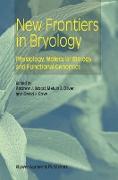New Frontiers in Bryology
BücherAngebote / Angebote:
The mosses (Bryophatea, Musci) are a diverse and widely distributed group of land plants. Mosses are attractive experimental plants because they exhibit the traditional attributes of good model systems (i.e. ease of growth and maintenance, fast generation time, and amenable genetics) with the added advantage of a haploid gametophyte that allowed developmental mutants to be recovered with relative ease. And, in one of the most exciting developments in Plant Biology, efficient homologous recombination occurs in the moss Physcomitrella patens. The ability to perform efficient homologous recombination (i.e. gene knock-outs) in P. patens is at present unique amongst all plants and represents an extremely powerful technique for the functional analysis of many plant genes. From evolution and development to the homologous recombination and the creation of novel molecular tools, mosses are being used to elucidate fundamental biological processes in plants. This book provides a synopsis of the outstanding basic research being conducted using mosses as a model multi-cellular eukaryote. TOC:Preface.- 1. Molecular Phylogeny of Bryophytes and Peculiarities of their Chloroplast and Mitochondrial DNAs.- 2. Genomes and Databases.- 3. Principles of Targeted Mutagenesis in the Moss Physcomitrella patens.- 4. Applied Genomics in Physcomitrella.- 5. Molecular Biology and Genomics of the Dessication-tolerant Moss Tortula ruralis.- 6. Evolution of the Organellar Transcription Machinery in Bryophytes and Vascular Plants.- 7. Gene Tagging, Gene- and Enhancer-trapping and Full-length cDNA Overexpression in Physcomitrella patens.- 8. Lipid Metabolism in Mosses.- 9. Phytochrome in Mosses.- 10. Blue/UV-A Light Signaling in Moss.- 11. The Use of Mosses for the Study of Cell Polarity.- Index.
Folgt in ca. 15 Arbeitstagen
